
Konya: The Spiritual Heart of Turkiye
Konya is a hidden gem in the heart of Turkiye, known for its rich history, spiritual significance, and stunning architecture. As the former capital of the Seljuk Empire, Konya boasts a wealth of historical sites, including the iconic Mevlana Museum, which houses the tomb of the famous poet and mystic Rumi. Visitors can immerse themselves in the profound spirituality that permeates the city, making it a unique and enriching destination. Walking through the streets of Konya, you'll encounter a blend of ancient and modern influences. The city's bazaars are bustling with activity, offering a variety of local crafts, textiles, and culinary delights. Don't miss the chance to sample traditional Turkish dishes like Etliekmek, a local flatbread topped with minced meat, or savor a cup of Turkish tea in one of the many charming tea houses scattered throughout the city. Konya's natural beauty is equally captivating. The city is surrounded by breathtaking landscapes, including the sprawling plains of the Anatolian Plateau and the nearby Taurus Mountains. Outdoor enthusiasts can explore the stunning Alaaddin Hill, a serene park offering panoramic views of the city, or take a day trip to the picturesque Lake Beysehir, perfect for a relaxing boat ride or a scenic hike.
Local tips in Konya
- Visit the Mevlana Museum early in the morning to avoid the crowds and fully appreciate its tranquility.
- Wear comfortable shoes, as exploring the city's historical sites involves a lot of walking.
- Try the local specialty, Etliekmek, at a traditional Konya restaurant for an authentic culinary experience.
- Respect local customs, especially when visiting mosques and other religious sites. Modest clothing is recommended.
- Consider visiting during the annual Rumi Festival in December to witness Sufi whirling dervishes and other cultural events.
- Use public transportation or taxis to get around the city, as parking can be challenging in busy areas.
Konya: The Spiritual Heart of Turkiye
Konya is a hidden gem in the heart of Turkiye, known for its rich history, spiritual significance, and stunning architecture. As the former capital of the Seljuk Empire, Konya boasts a wealth of historical sites, including the iconic Mevlana Museum, which houses the tomb of the famous poet and mystic Rumi. Visitors can immerse themselves in the profound spirituality that permeates the city, making it a unique and enriching destination. Walking through the streets of Konya, you'll encounter a blend of ancient and modern influences. The city's bazaars are bustling with activity, offering a variety of local crafts, textiles, and culinary delights. Don't miss the chance to sample traditional Turkish dishes like Etliekmek, a local flatbread topped with minced meat, or savor a cup of Turkish tea in one of the many charming tea houses scattered throughout the city. Konya's natural beauty is equally captivating. The city is surrounded by breathtaking landscapes, including the sprawling plains of the Anatolian Plateau and the nearby Taurus Mountains. Outdoor enthusiasts can explore the stunning Alaaddin Hill, a serene park offering panoramic views of the city, or take a day trip to the picturesque Lake Beysehir, perfect for a relaxing boat ride or a scenic hike.
When is the best time to go to Konya?
Iconic landmarks you can’t miss
Mevlana Museum
Explore the Mevlana Museum in Konya, a serene historical landmark celebrating Rumi's legacy through stunning architecture and rich cultural heritage.
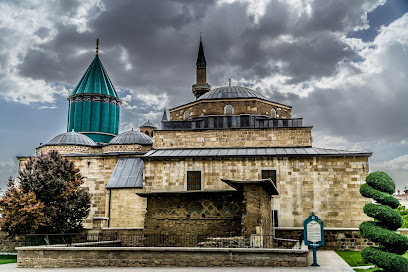
Konya Tropical Butterfly Garden
Experience nature's beauty at Konya Tropical Butterfly Garden, where vibrant butterflies dance amidst lush greenery, creating a serene escape for all visitors.
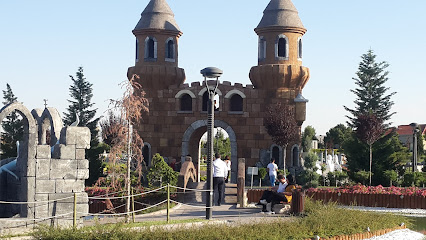
Alaaddin Hill Park
Explore Alaaddin Hill Park: A serene historical landmark in Selçuklu, Konya, offering spectacular views and rich cultural experiences for all visitors.
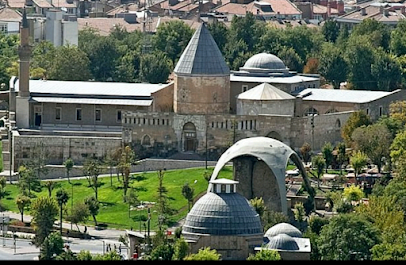
Culture Park
Discover the serene beauty of Culture Park in Selçuklu, Konya, a perfect blend of nature, relaxation, and local culture.
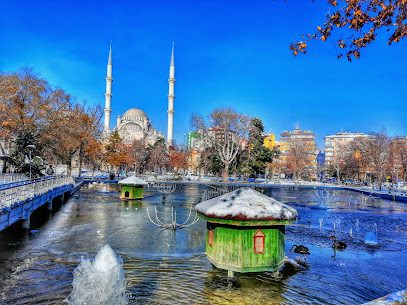
Kyoto Japanese Park
Explore the serene beauty of Kyoto Japanese Park in Selçuklu, a stunning blend of nature and Japanese culture perfect for relaxation and exploration.
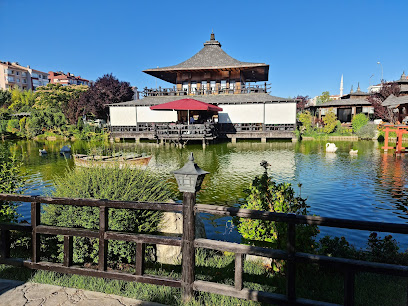
Sille Baraj Parkı
Discover the tranquil beauty of Sille Baraj Parkı in Konya, a perfect blend of nature and recreation for every traveler.
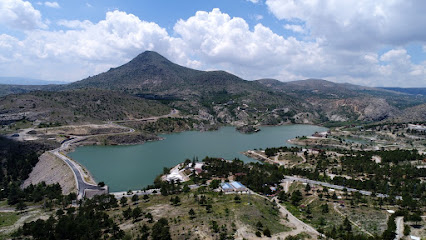
Konya Science Center
Explore interactive exhibits and engaging science education at the Konya Science Center, a must-visit for curious minds of all ages.
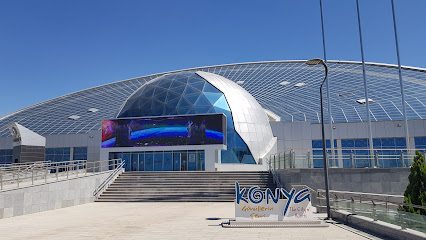
Halk Etliekmek Konya
Discover the authentic taste of Konya at Halk Etliekmek, a top spot for traditional Turkish sfiha and warm hospitality.
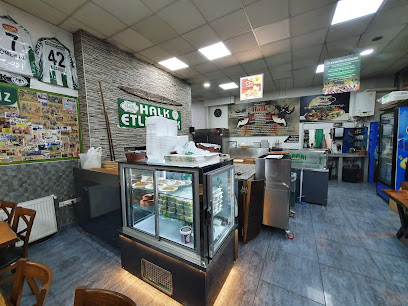
Bedesten Çarşı
Explore Bedesten Çarşı in Meram: A Cultural Hub of Traditional Turkish Clothing and Vibrant Market Atmosphere.
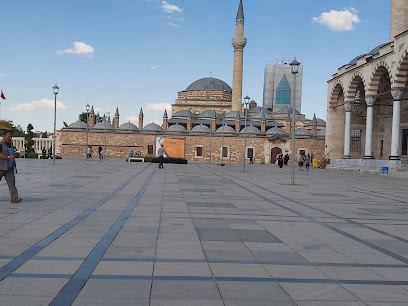
Azizia Mosque
Explore the breathtaking Azizia Mosque in Konya, a splendid example of Islamic architecture and a serene place for reflection and cultural immersion.
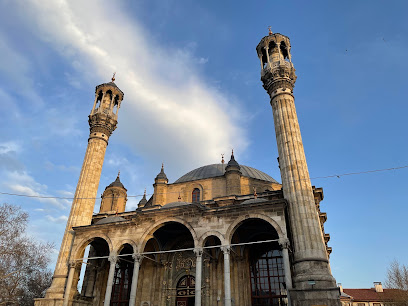
MİTHAT TİRİT
Savor the authentic flavors of Turkey at MİTHAT TİRİT, a culinary delight in Konya known for its traditional dishes and inviting atmosphere.
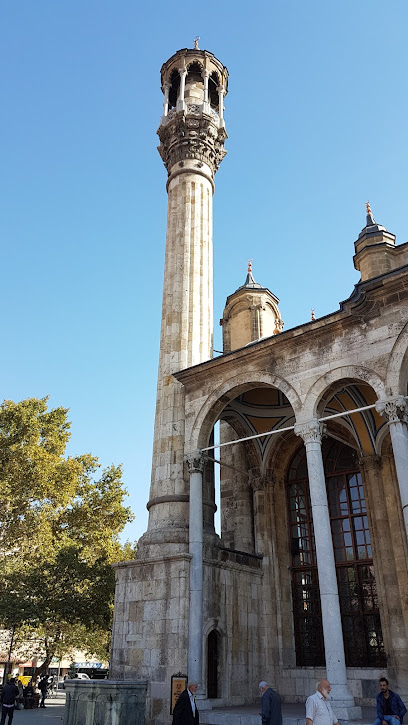
Shams of Tabriz Mosque and Tomb
Experience the serene beauty and spiritual significance of the Shams of Tabriz Mosque and Tomb in Konya, a captivating destination for cultural exploration.
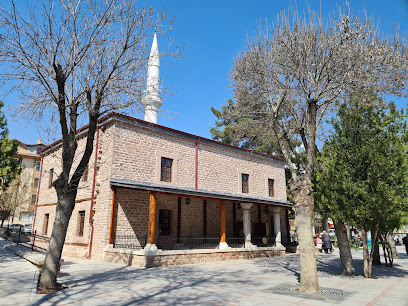
Kapu Mosque
Discover the architectural beauty and tranquil ambiance of Kapu Mosque in Konya, a must-visit tourist attraction for an immersive cultural experience.
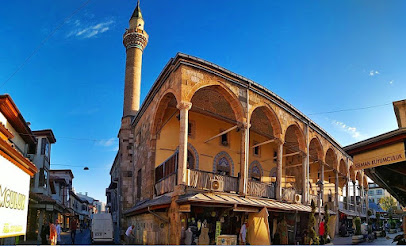
Hilton Garden Inn Konya
Discover modern hospitality and cultural richness at Hilton Garden Inn Konya, your gateway to exploring the city's vibrant heritage and attractions.
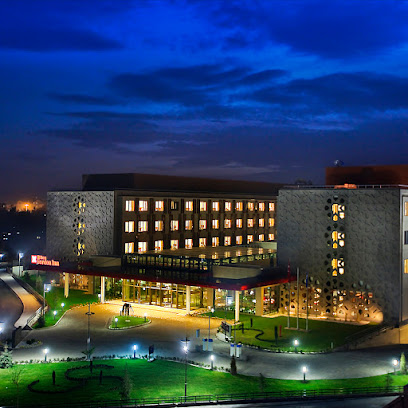
KONYA MERAM BAĞLARI
Experience the beauty and tranquility of Meram Bağları in Konya, a perfect picnic ground for nature lovers and families seeking relaxation.
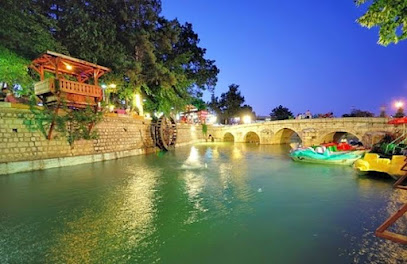
Unmissable attractions to see
Mevlana Museum
Explore the Mevlana Museum in Konya, a historical treasure celebrating the life and teachings of Rumi, a legacy of love and spirituality.

Alaaddin Hill Park
Explore the historical and natural beauty of Alaaddin Hill Park in Selçuklu, Konya, where rich heritage meets breathtaking views.
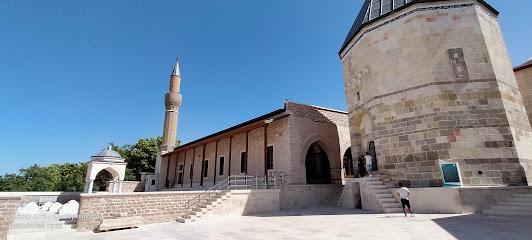
Kyoto Japanese Park
Explore Kyoto Japanese Park, a serene oasis in Konya, blending nature's beauty with traditional Japanese aesthetics for a peaceful retreat.
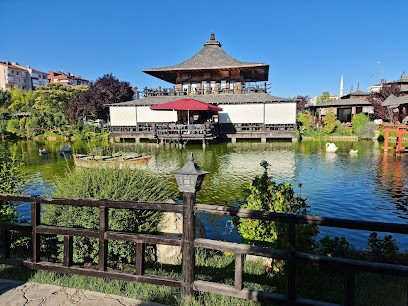
Konya Büyükşehir Arena
Experience the excitement of Turkish football at Konya Büyükşehir Arena, the home of Konyaspor, where sports and culture come alive in Konya.
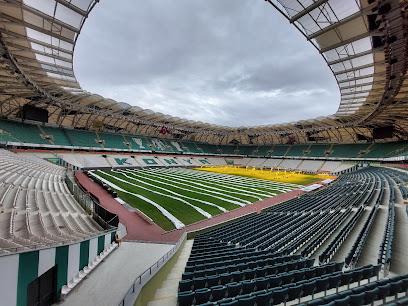
Around the World in 80 Thousand Park
Discover the beauty of Turkish architecture and nature at Around the World in 80 Thousand Park, a captivating destination in Meram, Konya.
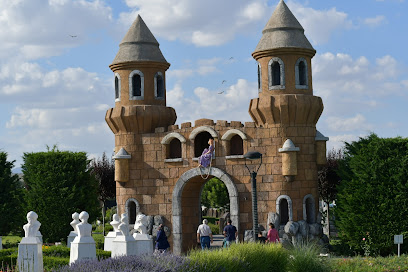
Ecdat Parkı
Discover the tranquility of Ecdat Parkı, a beautiful green space in Selçuklu, perfect for relaxation, picnics, and enjoying nature's beauty.
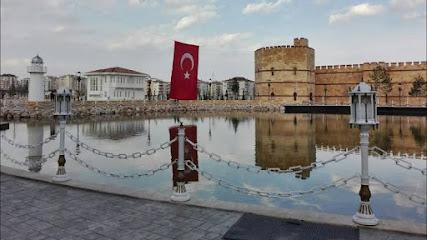
Azizia Mosque
Explore the stunning Azizia Mosque in Konya, a serene architectural marvel showcasing the beauty of Ottoman design and cultural heritage.
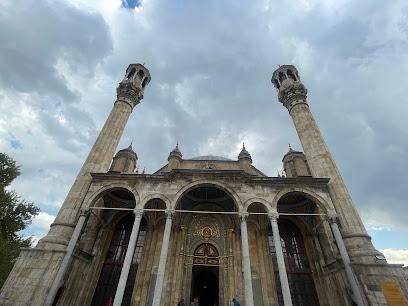
Karatay Belediyesi Hayvanat Bahçesi
Experience the vibrant wildlife and educational exhibits at Karatay Belediyesi Hayvanat Bahçesi in Konya, a perfect family destination.
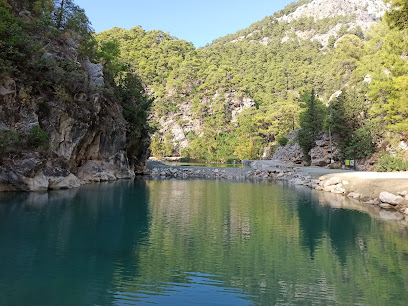
Shams of Tabriz Mosque and Tomb
Discover the spiritual beauty of Shams of Tabriz Mosque and Tomb in Konya, a cultural gem celebrating the legacy of mystical poetry.
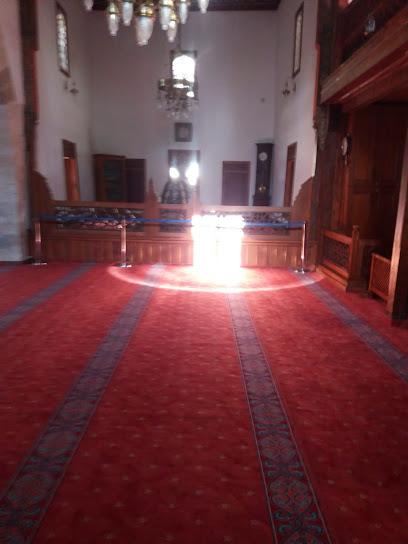
Kapu Mosque
Discover the spiritual beauty and architectural splendor of Kapu Mosque in Konya, a must-visit destination for cultural enthusiasts and travelers alike.
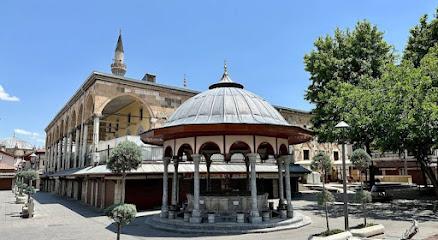
Çatalhöyük
Explore Çatalhöyük, the ancient settlement that tells the story of humanity's earliest urban life and agricultural innovation.
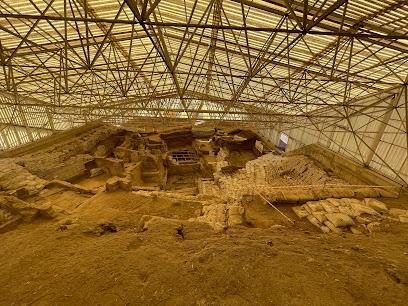
Mevlana Cultural Center
Explore the Mevlana Cultural Center in Konya, a vibrant hub of Sufism, art, and poetry dedicated to the teachings of Rumi.
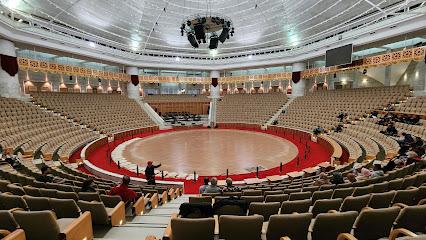
Paribu Cineverse Konya Kentplaza AVM
Experience cutting-edge cinema at Paribu Cineverse Konya Kentplaza AVM, where film and comfort unite for an unforgettable movie night.

Selçuklu Kongre Merkezi Konya
Explore the vibrant Selçuklu Kongre Merkezi, where culture and community converge in the heart of Konya, Turkey.
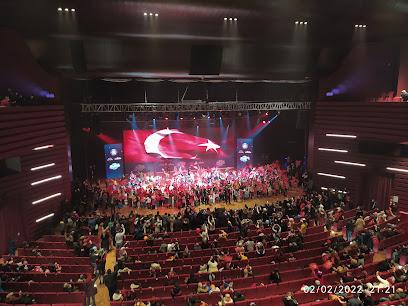
Konya Archeological Museum
Explore the rich history of Konya at the Archaeological Museum, home to ancient artifacts and captivating exhibitions from Turkey's vibrant past.
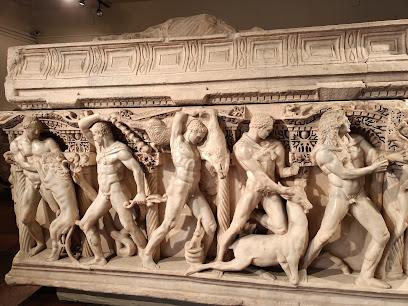
Essential places to dine
Halk Etliekmek Konya
Experience authentic Turkish flavors at Halk Etliekmek Konya – home of the best sfiha and warm hospitality.
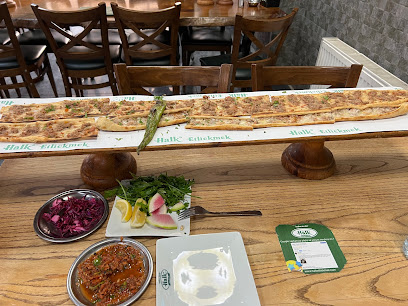
MİTHAT TİRİT
Discover the rich flavors of Turkish cuisine at MİTHAT TİRİT in Konya - a true culinary delight for every traveler.
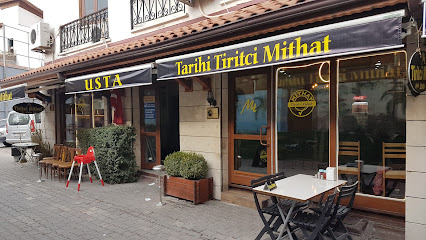
Cemo Restaurant
Experience the authentic taste of Sfiha at Cemo Restaurant in Selçuklu – where tradition meets flavor.
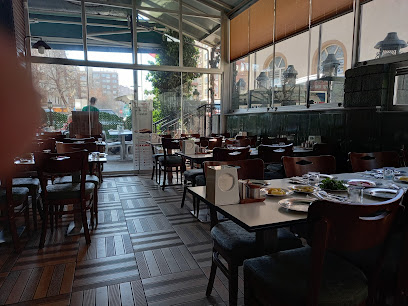
Konya Kebap Evi
Discover authentic Turkish flavors at Konya Kebap Evi - your destination for exquisite kebabs and delightful desserts in Selçuklu.
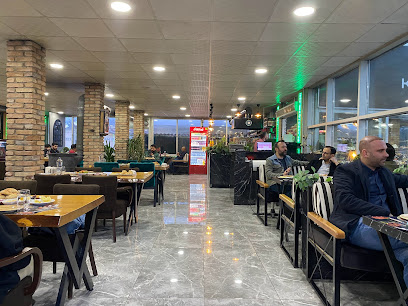
Nezih Konya Mutfağı
Discover authentic Turkish flavors at Nezih Konya Mutfağı - where tradition meets taste in every dish.
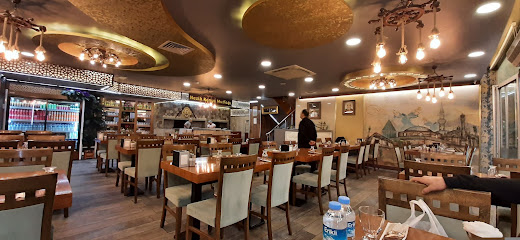
Sifa Restaurant
Discover the essence of Turkish cuisine at Sifa Restaurant in Konya, where fine dining meets traditional flavors in an elegant setting.
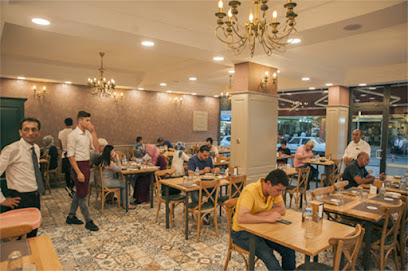
Taka Balık (Fish)
Discover Taka Balık in Selçuklu: A premier destination for fresh seafood lovers offering delightful dishes in a charming setting.
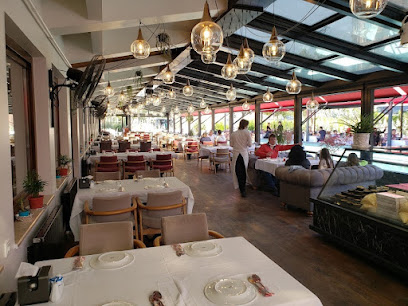
Hasan Şendağlı Yağ Somunu & Etliekmek
Experience authentic Turkish cuisine at Hasan Şendağlı Yağ Somunu & Etliekmek - where tradition meets flavor in every bite.
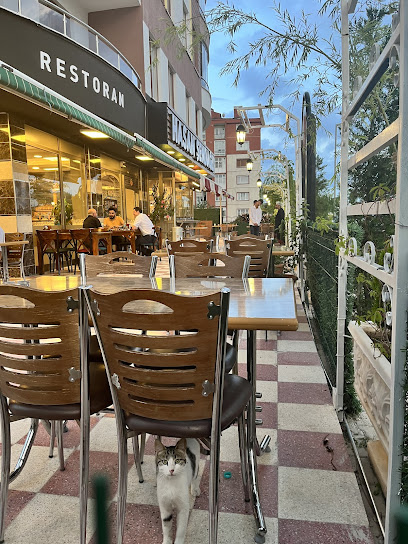
Konya Mutfağı Mevlana
Discover authentic Turkish cuisine at Konya Mutfağı Mevlana - where tradition meets flavor in every bite.
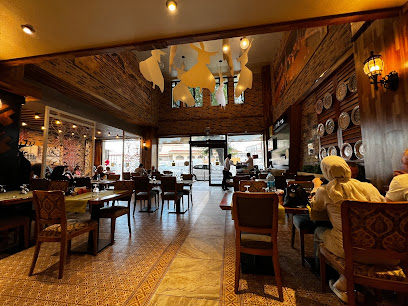
Havzan etliekmek 1
Experience the authentic taste of Turkey at Havzan Etliekmek, renowned for its delicious sfiha and warm hospitality in Meram.
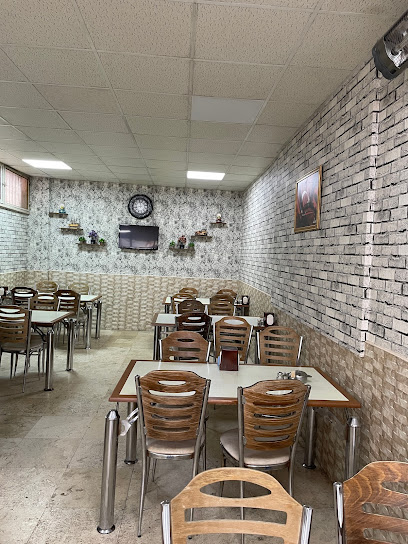
Lokmahane
Experience authentic Turkish cuisine at Lokmahane in Konya – where tradition meets taste in every delightful dish.
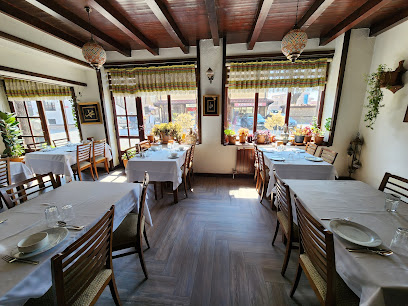
Celal Bey Etli Ekmek
Experience authentic Turkish cuisine at Celal Bey Etli Ekmek in Konya—home to mouthwatering sfiha and welcoming ambiance.
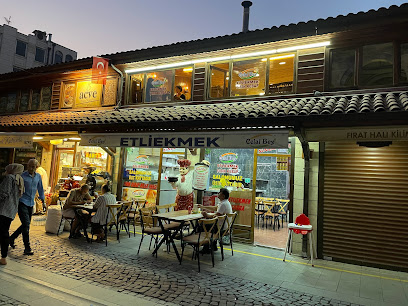
Somatçı Fihi Ma Fih Restaurant . Geçici olarak kapalı
Experience authentic Turkish cuisine at Somatçı Fihi Ma Fih Restaurant in Konya - perfect for families and food lovers alike.
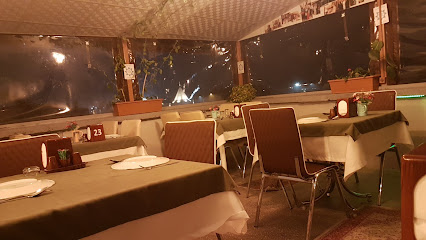
Kule Sini Restaurant
Experience exquisite dining at Kule Sini Restaurant in Selçuklu, offering stunning views and a diverse menu that delights every palate.
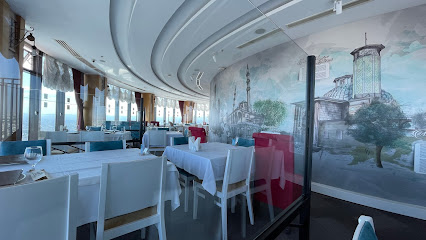
KÜLTÜR KAFE RESTAURANT
Experience authentic Turkish flavors at Kültür Kafe Restaurant in Selçuklu—home to exquisite offal barbecue and delightful fast food options.
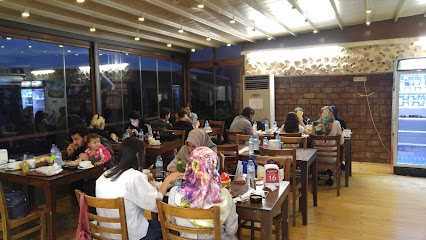
Markets, malls and hidden boutiques
Konya Kentplaza Alışveriş ve Yaşam Merkezi
Experience the ultimate shopping and entertainment destination at Konya Kentplaza Alışveriş ve Yaşam Merkezi in the heart of Konya.
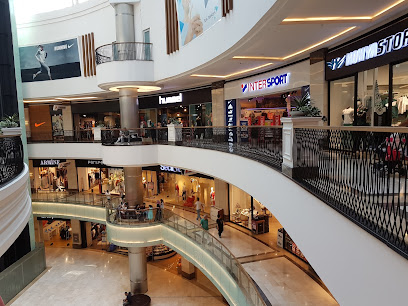
Kulesite shopping center in Konya
Explore Kulesite Shopping Center in Konya for exceptional shopping, dining, and entertainment experiences in a modern setting.
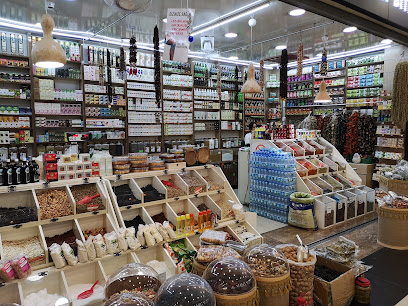
M1 Konya Alışveriş Merkezi
Discover a shopping haven at M1 Konya Shopping Mall, where fashion meets flavor in the heart of Konya.
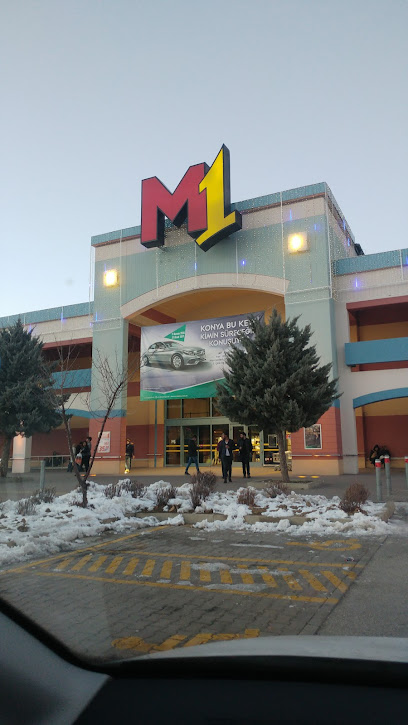
Novaland Outlet Alışveriş Merkezi
Experience the ultimate shopping adventure at Novaland Outlet Alışveriş Merkezi, where style meets savings in Konya.
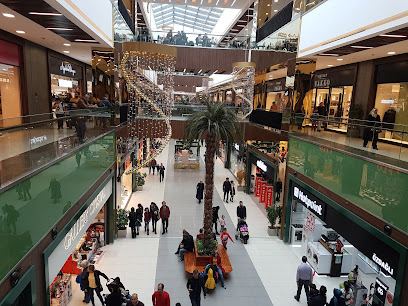
Bedesten Çarşı
Explore Bedesten Çarşı: A bustling clothing market in Konya, blending local fashion with cultural charm for an unforgettable shopping experience.
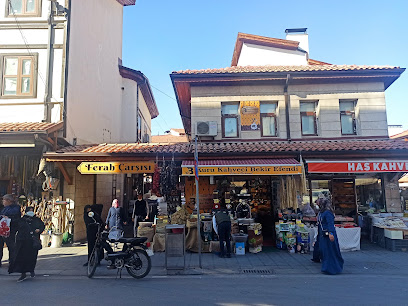
Konya Selçuker Center
Experience the best of shopping, dining, and entertainment at the Konya Selçuker Center, a vibrant hub in the heart of Selçuklu.
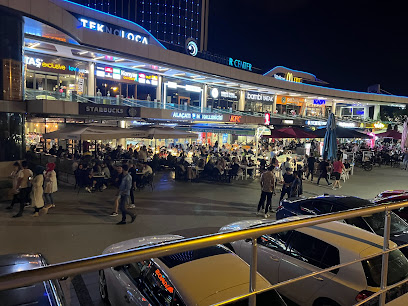
Boyner Kule Site AVM
Explore Boyner Kule Site AVM in Konya for an unparalleled shopping experience with diverse brands and delightful dining options.
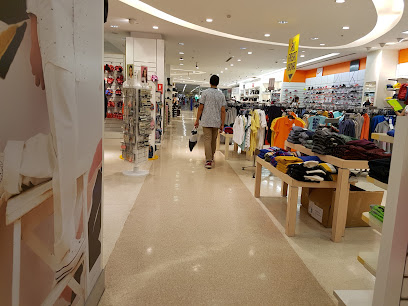
Konya Store
Explore the best in local fashion at Konya Store, where style meets quality in the heart of Selçuklu.
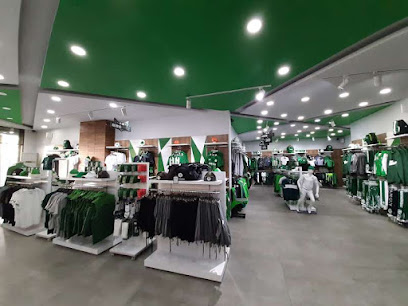
SERPİLCE TARZ&MODA
Explore the stylish collections at Serpilce Tarz&Moda in Konya, where modern fashion meets exceptional customer service for the discerning woman.
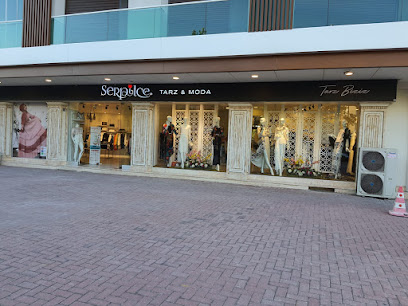
Ketenciler Nargile&Hediyelik Eşya
Discover the charm of Turkish culture at Ketenciler Nargile & Hediyelik Eşya, where unique souvenirs meet authentic nargile experiences in Konya.
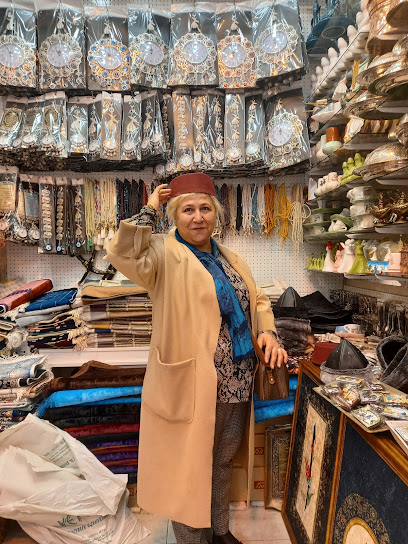
Takı Your
Explore the unique offerings of Takı Your, a boutique in Konya where tradition meets craftsmanship for an unforgettable shopping experience.
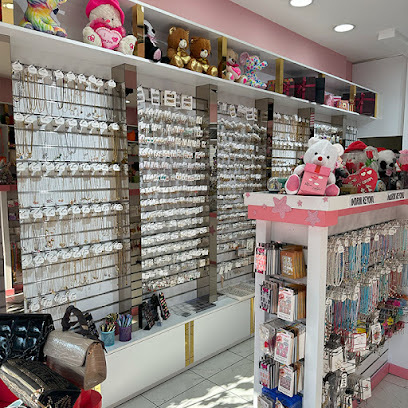
Hattat Efendi Hediyelik
Explore Hattat Efendi Hediyelik in Selçuklu, Konya for unique souvenirs and local crafts that embody the spirit of Turkish culture.
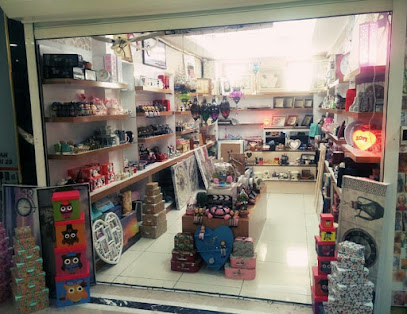
ERDEĞER HEDİYELİK EŞYA LAZER KESİM KUPA BASKI TİŞÖRT BASKI
Explore Erdeğer Hediyelik, your go-to gift shop in Selçuklu, Konya for personalized souvenirs and unique treasures.
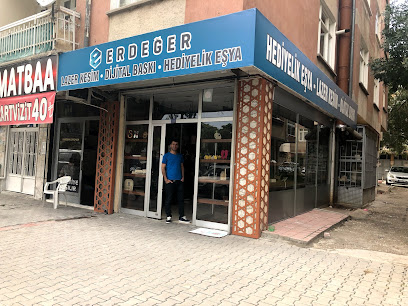
KONYA AVM
Discover KONYA AVM: A vibrant department store in Konya, blending local charm with international shopping experiences.
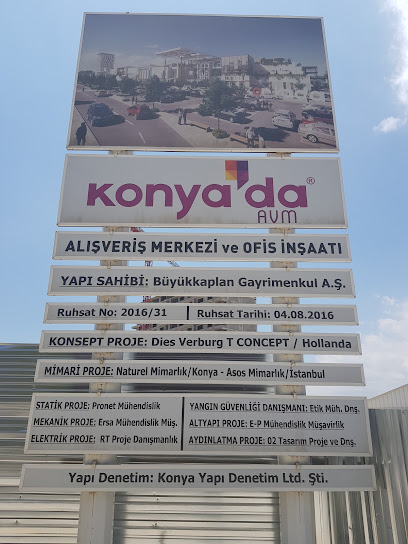
Work Shop
Explore the charm of Konya at Work Shop, your go-to souvenir store for authentic Turkish crafts and unique treasures to take home.
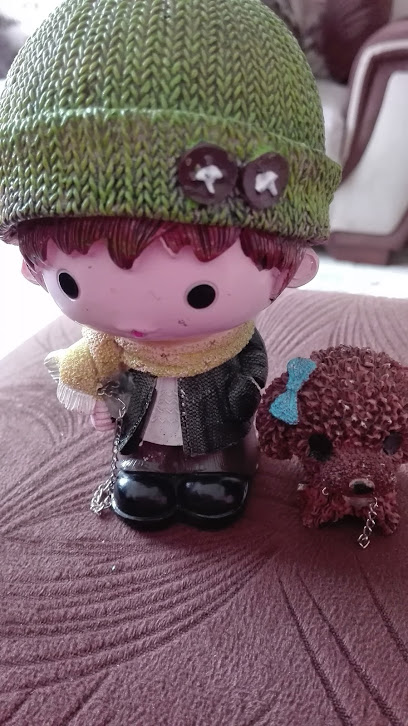
Essential bars & hidden hideouts
Cafe Extrablatt
Experience the perfect blend of cozy café vibes and vibrant pub atmosphere at Café Extrablatt in Selçuklu, Konya.
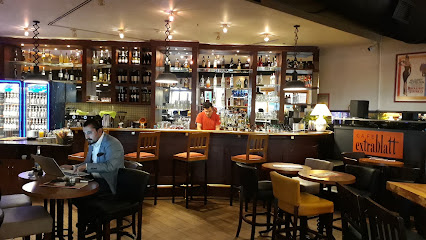
Mr. Frog Pub Bistro
Discover the heart of Konya's nightlife at Mr. Frog Pub Bistro, where great food and drink meet an inviting atmosphere.
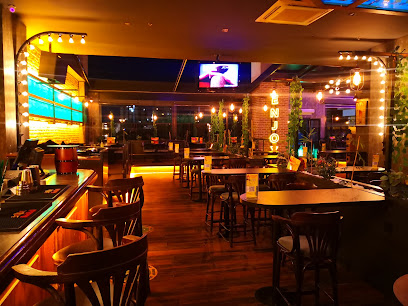
Grand maksim gazinosu
Discover the vibrant nightlife of Konya at Grand Maksim Gazinosu, a lively bar that promises memorable evenings and delightful drinks.
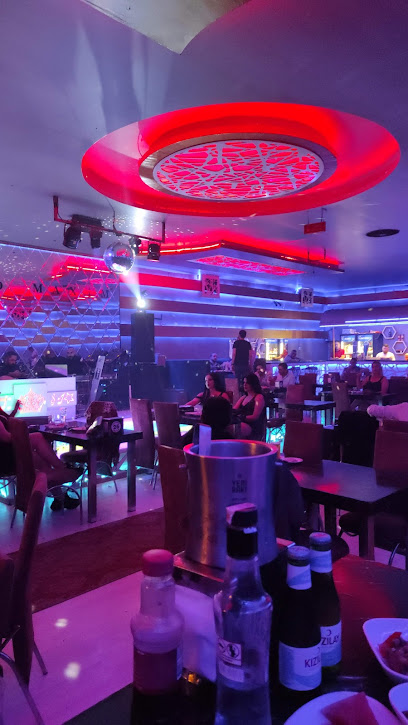
Divane Lounge
Discover the exquisite flavors of Turkish cuisine at Divane Lounge in Selçuklu, Konya—where tradition meets modern dining.
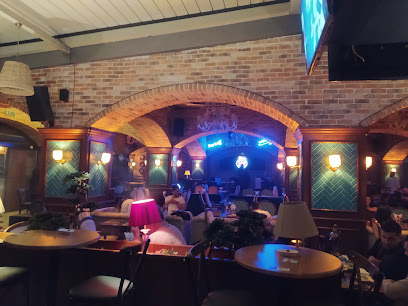
X Side Pub
Experience the lively ambiance and diverse drink selection at X Side Pub, a vibrant nightlife hotspot in Selçuklu, Konya.
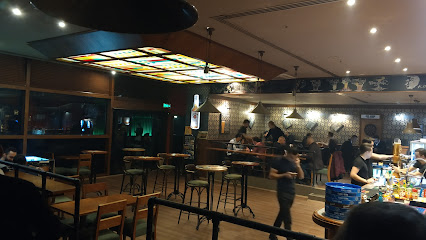
Nazar Birahanesi
Experience the vibrant atmosphere of Nazar Birahanesi, a local bar in Konya offering a delightful mix of beverages and lively socializing.
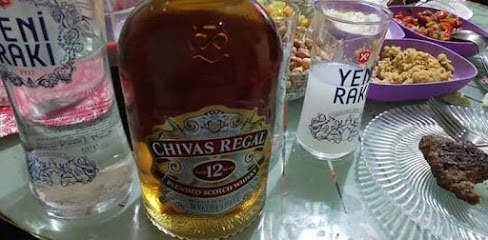
Lastrada Cafe Restoran Bar
Discover the perfect blend of Italian flavors and pub culture at Lastrada Cafe Restoran Bar in Selçuklu, Konya.
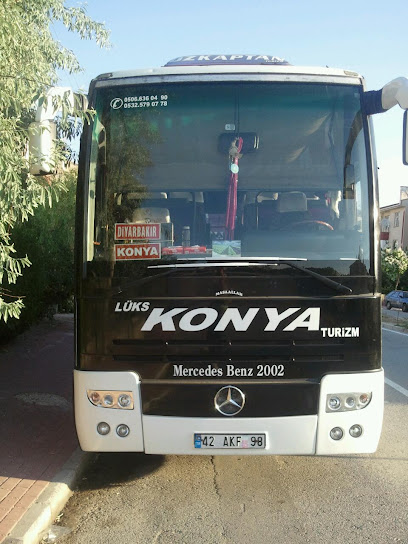
Sarmaşik Bar Kuşcular
Experience the vibrant atmosphere and refreshing drinks at Sarmaşik Bar Kuşcular in Meram, a local favorite for tourists and residents alike.
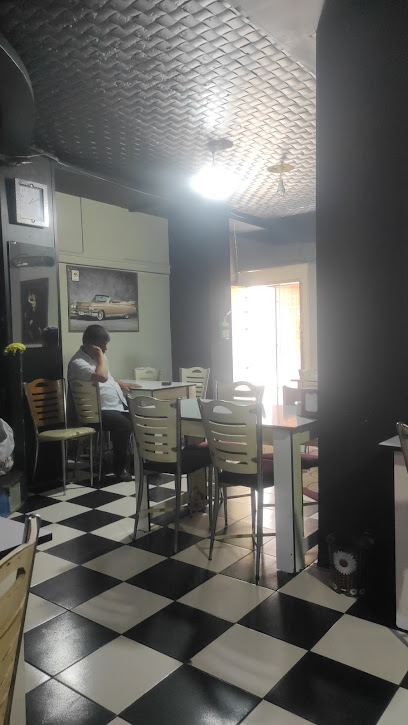
Goca Usta 1989
Explore the rich flavors of Turkish cuisine at Goca Usta 1989, a premier grill restaurant in Selçuklu, Konya, offering mouthwatering dishes and exceptional service.
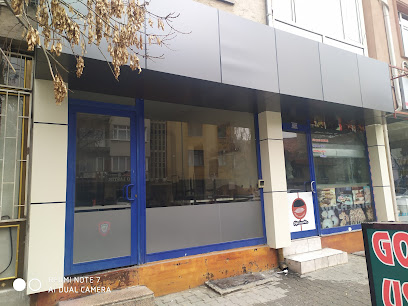
Star Birahanesi
Discover the vibrant nightlife at Star Birahanesi, a top bar in Konya offering a unique local flavor and a welcoming atmosphere for all.
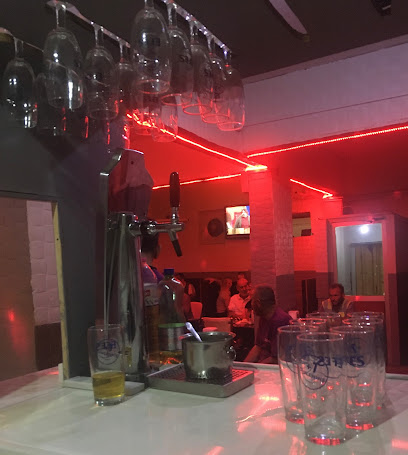
İrish pub
Discover İrish Pub in Selçuklu, a cozy bar offering a blend of traditional Irish charm and local flavors, perfect for unwinding after sightseeing.
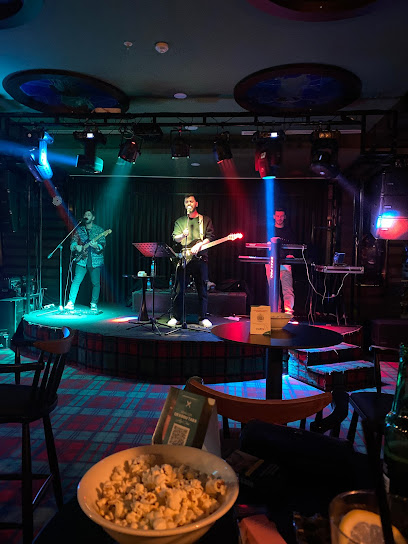
Osmali nargile shisha
Experience the art of Turkish shisha at Osmali Nargile Shisha in Meram, where relaxation meets cultural richness.
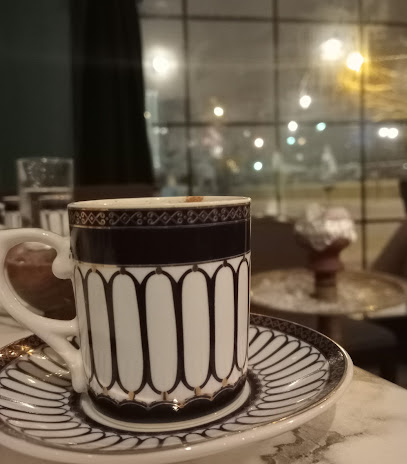
Fısıltı Birahanesi
Experience the vibrant nightlife of Konya at Fısıltı Birahanesi, a cozy bar offering a unique blend of local culture and refreshing drinks.
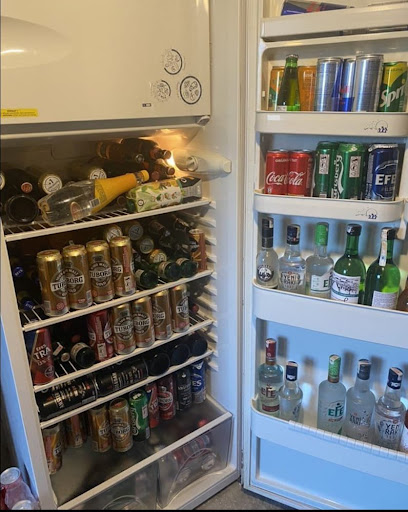
Atçeken Şahane Bar
Discover the local nightlife at Atçeken Şahane Bar in Meram, Konya. Enjoy drinks, music, and a vibrant atmosphere perfect for socializing.
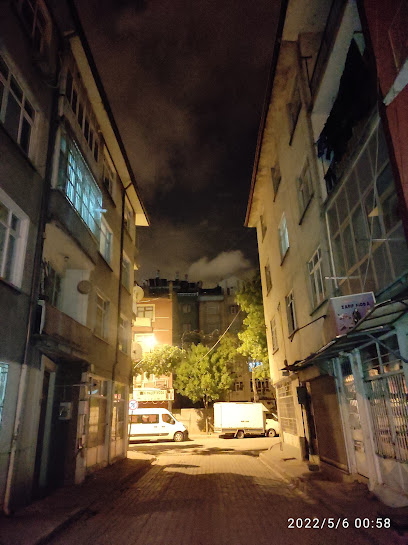
Local Phrases
-
- HelloMerhaba
[Mer-ha-ba] - GoodbyeHoşça kal
[Hosh-cha kal] - YesEvet
[Eh-vet] - NoHayır
[Ha-yır] - Please/You're welcomeLütfen
[Loot-fen] - Thank youTeşekkür ederim
[Te-she-kur e-de-rim] - Excuse me/SorryÖzür dilerim
[O-zur di-le-rim] - How are you?Nasılsınız?
[Na-sul-suh-nuz] - Fine. And you?İyiyim. Siz?
[Ee-yee-yim. Sez] - Do you speak English?İngilizce konuşuyor musunuz?
[Ingiliz-je konu-shu-yor mu-sunuz] - I don't understandAnlamıyorum
[An-la-mi-yo-rum]
- HelloMerhaba
-
- I'd like to see the menu, pleaseMenüyü görmek istiyorum, lütfen
[Me-nu-yu gur-mek is-tee-yo-rum, loot-fen] - I don't eat meatEt yemem
[Et ye-mem] - Cheers!Şerefe!
[She-re-fe] - I would like to pay, pleaseÖdemek istiyorum, lütfen
[O-de-mek is-tee-yo-rum, loot-fen]
- I'd like to see the menu, pleaseMenüyü görmek istiyorum, lütfen
-
- Help!Yardım edin!
[Yar-dum e-din] - Go away!Uzaklaş!
[U-zak-laş] - Call the Police!Polisi arayın!
[Po-li-si a-ra-yın] - Call a doctor!Doktor çağırın!
[Dok-tor cha-ğır-ın] - I'm lostKayboldum
[Kay-bol-dum] - I'm illHasta oldum
[Has-ta ol-dum]
- Help!Yardım edin!
-
- I'd like to buy...Satın almak istiyorum...
[Satın al-mak is-tee-yo-rum] - I'm just lookingSadece bakıyorum
[Sa-de-ce ba-ku-yo-rum] - How much is it?Kaç lira?
[Kach lee-ra] - That's too expensiveBu çok pahalı
[Bu chok pa-ha-luh] - Can you lower the price?Fiyatı indirebilir misiniz?
[Fiyatı in-di-re-bi-lir mi-sin-iz]
- I'd like to buy...Satın almak istiyorum...
-
- What time is it?Saat kaç?
[Sa-at kach] - It's one o'clockSaat bir
[Sa-at beer] - Half past (10)On buçuk
[On boo-chuk] - MorningSabah
[Sa-bah] - AfternoonÖğleden sonra
[O-le-den af-te-ruh] - EveningAkşam
[Ak-sham] - YesterdayDün
[Dun] - TodayBugün
[Bu-gun] - TomorrowYarın
[Ya-rin] - 1Bir
[Beer] - 2İki
[Ee-kee] - 3Üç
[Ooch] - 4Dört
[Dort] - 5Beş
[Besh] - 6Altı
[Al-tuh] - 7Yedi
[Ye-di] - 8Sekiz
[Se-kiz] - 9Dokuz
[Do-kuz] - 10On
[On]
- What time is it?Saat kaç?
-
- Where's a/the...?... nerede?
[Ner-e-de] - What's the address?Adres nedir?
[Ad-res ne-dir] - Can you show me (on the map)?(Haritada) gösterebilir misiniz?
[(Ha-ree-ta-da) gos-te-re-bi-lir mi-si-niz] - When's the next (bus)?Sonraki (otobüs) ne zaman?
[Son-ra-ki (o-to-bus) ne za-man] - A ticket (to ....)Bir bilet (....'ye)
[Beer bee-let (....-ye)]
- Where's a/the...?... nerede?
History of Konya
-
Konya, known as Iconium in ancient times, has a history that stretches back to the Neolithic period. Archaeological evidence suggests that the area was inhabited as early as 3000 BCE. It was an important city in the Hittite Empire and later came under the control of the Phrygians and Lydians. The city's strategic location made it a vital center for commerce and culture.
-
Following the conquests of Alexander the Great, Iconium became part of the Hellenistic world. It later fell under Roman control in the 1st century BCE. During Roman times, the city flourished and became an important center of early Christianity. It is mentioned in the New Testament as a place visited by the Apostle Paul during his missionary journeys.
-
Konya rose to prominence during the 11th century when it became the capital of the Seljuk Sultanate of Rum. Under Seljuk rule, the city experienced a golden age, becoming a major center of learning, culture, and art. The construction of impressive architectural works such as the Alaeddin Mosque and the Karatay Medrese are testaments to this period.
-
One of the most significant cultural contributions of Konya is its association with the famous Persian poet and Sufi mystic, Jalal ad-Din Rumi, also known as Mevlana. Rumi lived in Konya in the 13th century, and his poetry and teachings have had a profound impact on Sufism and Islamic thought. The Mevlana Museum, which houses his mausoleum, is one of Konya's most visited sites.
-
Konya became part of the Ottoman Empire in the late 15th century. During the Ottoman period, the city continued to be an important administrative and cultural center. Many classical Ottoman structures, such as mosques, baths, and caravansaries, were built during this time, contributing to the city's rich architectural heritage.
-
In the early 20th century, Konya played a role in the Turkish War of Independence. Following the establishment of the Republic of Turkey, Konya modernized rapidly while preserving its historical and cultural heritage. Today, it is an important agricultural, industrial, and educational hub, known for its blend of historical charm and modern amenities.
Konya Essentials
-
Konya is well-connected by air, road, and rail. The nearest airport is Konya Airport (KYA), which receives both domestic and limited international flights. From the airport, you can take a taxi or a shuttle bus to the city center, approximately 15 kilometers away. Konya is also accessible by high-speed trains (YHT) from major cities like Istanbul and Ankara. The train station is centrally located, and you can easily find taxis or public transport to reach your accommodation. Additionally, long-distance buses operate frequently from various cities in Turkiye to Konya's main bus terminal (Otogar).
-
Konya has a well-developed public transportation system, including buses and trams. The tram system is particularly useful for getting around the city center and to major attractions like the Mevlana Museum. Taxis are also readily available and relatively inexpensive. For short distances, you can rent bicycles or electric scooters. If you prefer more autonomy, renting a car is a convenient option, especially for exploring the surrounding areas and historical sites.
-
The official currency in Turkiye is the Turkish Lira (TRY). Credit and debit cards are widely accepted in hotels, restaurants, and shops in Konya. However, it's advisable to carry some cash for smaller establishments, local markets, and public transport. ATMs are plentiful throughout the city, and you can withdraw Turkish Lira using international cards. It's a good idea to inform your bank about your travel plans to avoid any issues with card transactions.
-
Konya is generally considered a safe city for tourists. However, like any travel destination, it's important to take standard precautions. Avoid walking alone at night in unfamiliar areas and keep an eye on your belongings in crowded places. There are no specific high-crime areas targeting tourists in Konya, but staying vigilant is always a good practice. Stick to well-lit and populated areas, especially after dark.
-
In case of emergency, dial 112 for immediate assistance. The local police station and medical facilities are available in Konya. It's recommended to have travel insurance that covers medical emergencies. For minor health issues, there are numerous pharmacies throughout the city where you can purchase over-the-counter medications. Most pharmacists speak basic English and can assist with common ailments.
-
Fashion: Do dress modestly, especially when visiting religious sites. Avoid wearing revealing clothing. Religion: Do respect local customs and traditions. Always cover your head when entering mosques. Public Transport: Do be respectful and give up your seat to elderly passengers. Don't eat or drink on public transport. Greetings: Do greet people with a handshake. A slight bow of the head is also a sign of respect. Eating & Drinking: Do try local delicacies and accept food offerings graciously. Don't refuse hospitality, as it is considered impolite.
-
To experience Konya like a local, visit the local markets where you can buy fresh produce and traditional Turkish goods. Engage with locals, as they are often friendly and willing to share stories about the city's history and culture. Don't miss visiting the Mevlana Museum, which is a significant cultural and spiritual site. For a unique experience, attend a Whirling Dervishes ceremony, offering a profound insight into Sufi traditions. Exploring the Alaeddin Hill and its park is also a favorite local pastime, offering beautiful views of the city.
Trending Landmark in Konya
Nearby Cities to Konya
-
Things To Do in Alanya
-
Things To Do in Antalya
-
Things To Do in Goreme
-
Things To Do in Cappadocia
-
Things To Do in Ankara
-
Things To Do in Adana
-
Things To Do in Kyrenia
-
Things To Do in Pamukkale
-
Things To Do in Nicosia
-
Things To Do in Polis Chrysochous
-
Things To Do in Fethiye
-
Things To Do in Troodos
-
Things To Do in Famagusta
-
Things To Do in Larnaca
-
Things To Do in Paphos













